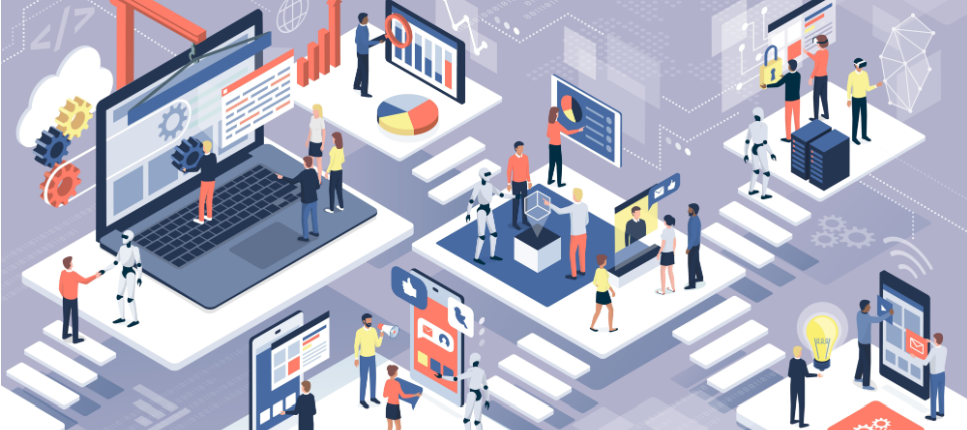With the accelerated changes in digital technology, particularly in artificial intelligence (AI), the workplace is on the verge of a real revolution. As a result, a Californian think tank led by the Institute for the Future estimated that 85% of the professions that will be carried out in 2030 have not yet been created.
It is in the wake of these observations and after having interviewed some thirty relevant actors from various backgrounds that Isabelle Rouhan, president of the recruitment firm Colibri Talent, wrote Les métiers du futur, in collaboration with Clara Doïna Schmelk. In addition to reflections on tomorrow’s workplace, they present a typology of trades that can articulate it. These trades are classified into three main categories, of which we present below an overview.
-
Evolving environments and professions
These types of professions and work settings already exist but are expected to change due to automation.
As an example:
- Today’s teacher would become the teacher of the future, which would be divided into three models: professionals who would create online training, others who would put it online on different platforms and others who would specialize in learner mentoring.
- Today’s data scientist would become the data interpreter, who would be a project manager responsible for ensuring that there is no bias in the algorithms. It would act in terms of defining the right problematics — for example, predicting performance — solving it using data science and usefully interpreting the results obtained.
-
Environments in revolution
Under the influence of automation, some work environments are expected to undergo radical changes.
As an example:
In the business world, the way a project is carried out is likely to change with the adoption of AGILE methodologies. The same should be true in management, where managers could use neuroscience — becoming neuro-managers — to optimize the work they do with their team(s).
-
Professions in radical innovation
At the moment, these professions do not exist!
As an example:
- The robot educator whose mission would be to identify and supervise the limits, constraints and rights that should apply to robots; in other words, to define what would be allowed in the programming of algorithms to ensure that in human/machine relations, the rights of the former are respected.
- The ethical hacker would be the one who, like a hacker, would test computer systems to ensure that our data is protected from all forms of possible violations.
Related articles:
- Metacognition 101
- Develop your Metacognitive Skills
- Horizon 2030: Technology, Education and the Job Market
- 4 challenges for education in the digital revolution era
- Virtual Reality in Learning as Seen by a Ubisoft Expert
- Virtual and Augmented Reality: 8 Uses in Universities
- Artificial intelligence: from manual programming to deep learning
- Human vs. machine battle
- [INFOGRAPHIC] Top 10 crucial competencies for 2020







Leave A Comment